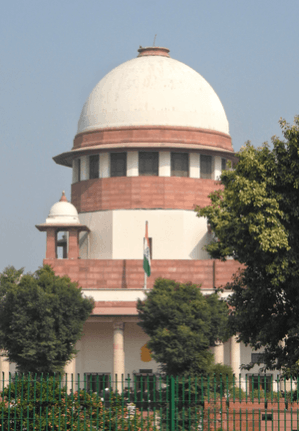
The Supreme Court of India, led by Chief Justice of India D. Y. Chandrachud, has upheld the constitutional validity of Section 6A of the Citizenship Act, 1955. This ruling comes in response to a series of petitions challenging the constitutionality of the said section, which was introduced to implement the Assam Accord and served as the foundation for the National Register of Citizens (NRC) in Assam in 2019.
The Constitution Bench, which also included Justices Surya Kant, M.M. Sundresh, J. B. Pardiwala, and Manoj Misra, had reserved its decision after hearing oral arguments from both sides in December of the previous year. The majority of the bench upheld the constitutional validity of the contested provision. However, Justice Pardiwala, in his minority opinion, struck down Section 6A of the Citizenship Act with prospective effect.
The Supreme Court, during the hearing, had requested the Union government to provide information on the administrative measures taken to curb the influx of illegal immigrants into Indian territory, particularly in northeastern states and Assam.
The court had also asked for a joint affidavit from the Union and Assam governments detailing the number of Bangladeshi immigrants granted citizenship in Assam between January 1, 1966, and March 25, 1971, under section 6A (2) of the Citizenship Act, 1955. Responding to the court's request, Solicitor General Tushar Mehta stated that illegal immigrants entered the country in a covert and secretive manner, making it impossible to gather accurate data on such individuals. This statement underscores the complexity and sensitivity of the issue at hand, which has far-reaching implications for the country's demographic and socio-political landscape.

The crux of the case revolved around the question of whether Section 6A of the Citizenship Act, 1955, suffers from any constitutional infirmity. The amended Section 6A stipulates that all persons of Indian origin who came before the 1st day of January 1966 to Assam from the specified territory (including such of those whose names were included in the electoral rolls used for the General Election to the House of the People held in 1967) and who have been ordinarily resident in Assam since the dates of their entry into Assam shall be deemed to be citizens of India as from the 1st day of January 1966.
This provision, therefore, regularizes the citizenship status of persons of Indian origin who migrated to Assam from specified territories before 1966. It also sets March 24, 1971, as the cut-off date for determining illegal immigration into the state. This cut-off date is significant as it marks the onset of the Bangladesh Liberation War, which led to a massive influx of refugees into India, particularly Assam.
The challenge to Section 6A of the Citizenship Act in the Supreme Court was based on allegations of its unconstitutionality. Concerns were raised over its provisions dealing with citizenship for migrants in Assam and its implications on the NRC process, which could potentially affect the rights and status of certain residents.
This case bears similarities to historical events where the constitutionality of citizenship laws was questioned. For instance, the 14th Amendment to the United States Constitution, which grants citizenship to all persons born or naturalized in the United States, was challenged in the infamous Dred Scott v. Sandford case. The Supreme Court's decision in the present case, like in the Dred Scott case, has the potential to shape the discourse on citizenship and immigration in India for years to come.

















